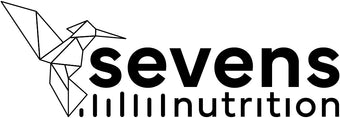The Hidden Language That Shapes Our Biological Destiny
Beyond the DNA we inherit, there is another level that defines how our genes express themselves: the epigenome. This regulatory system, highly sensitive to factors such as diet, stress, or environment, can modify genetic activity without altering the DNA sequence. Epigenetic alterations are at the heart of key processes affecting our health: from cellular aging to the onset of chronic diseases. Understanding them gives us the power to actively influence our biology.
Epigenetics: Where Genetics and Lifestyle Meet
Epigenetics refers to chemical changes in DNA and the proteins surrounding it, such as histones. These modifications can activate or silence genes, directly affecting their expression. What's most interesting: many of these epigenetic signatures can be shaped by our lifestyle and, in some cases, even inherited. This means that what we eat, how we manage stress, or our environment can impact not only our own health, but also that of future generations.
When the Epigenome Goes Out of Whack: Health Risks
Epigenetic alterations can trigger powerful effects. Silencing a gene that protects against cancer, for example, can increase the risk of developing this disease. Furthermore, they have been linked to cardiovascular problems, neurodegenerative diseases such as Alzheimer's, and metabolic disorders such as diabetes. This direct connection between the environment and health at the molecular level highlights the importance of adopting a comprehensive preventive approach.
Aging from a New Perspective
Over time, we accumulate epigenetic signatures that can dysregulate key cellular functions, accelerating aging and increasing the risk of age-related diseases. Recent research suggests that modifying these epigenetic patterns could help slow—or even partially reverse—certain aging processes. At Sevens, this approach aligns with our DNA and Renewal pillars, offering active ways to maintain cellular vitality over time.
Epigenetic Interventions: Medicine of the Future, Today
Epigenetic medicine is developing personalized drugs and protocols to reprogram the epigenome. Furthermore, nutrition, regular exercise, and stress management have been shown to positively influence genetic expression. Products such as Astaxanthin Sevens , with high antioxidant capacity and cell-protective effects, or BIO Sevens Turmeric , with natural anti-inflammatory properties, can be allies within a care strategy that considers epigenetic balance as the foundation of well-being.
Conclusion
Our DNA gives us the script, but it's the epigenome that directs the play. Epigenetic alterations are not an inevitable destiny: they can be modified, guided, and balanced. Science offers us new tools to write a healthier future, and we have the power to act. At Sevens, we firmly believe in this capacity for transformation, in this new paradigm where taking care of ourselves is not just a daily decision, but a way to influence our biological destiny.



